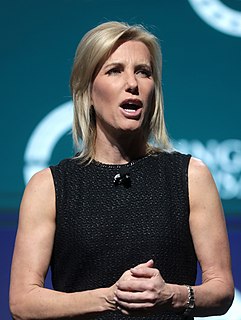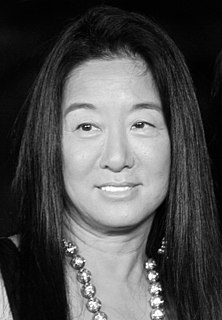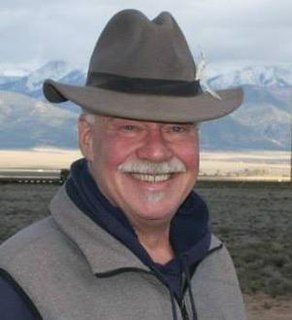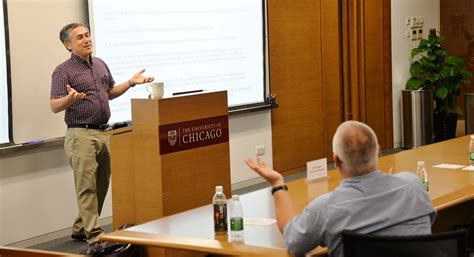Top 1002 Korea Quotes & Sayings - Page 17
Explore popular Korea quotes.
Last updated on December 4, 2024.
We know that Europe loves President Obama. He had adoring crowds. The press loves Obama. The question is how will this date end? Okay? The question is, to what end? Why do they love President Obama? They love his personal story, they love his wife. North Korea, China and Russia don't really care about Michelle's arms and, you know, whether they gave an iPod to the Queen, okay?
We can talk about the economy, we can talk about Social Security. The biggest problem this world has is nuclear proliferation. And we have a country out there, North Korea, which is sort of wacko, which is not a bunch of dummies. And they are going out and they are developing nuclear weapons. And they're not doing it because they're having fun doing it. They're doing it for a reason. And wouldn't it be good to sit down and really negotiate something and ideally negotiate? Now, if that negotiation doesn't work, you'd better solve the problem now than solve it later.
The new century demands new partnerships for peace and security. The United Nations plays a crucial role, with allies sharing burdens America might otherwise bear alone. America needs a strong and effective U.N. I want to work with this new Congress to pay our dues and our debts. We must continue to support security and stability in Europe and Asia - expanding NATO and defining its new missions, maintaining our alliance with Japan, with Korea, with our other Asian allies, and engaging China.
Drying her eyes, Mother said to Totto-chan very slowly, "You're Japanese and Masao-chan comes from a country called Korea. But he's a child, just like you. So, Totto-chan, dear, don't ever think of people as different. Don't think, 'That person's a Japanese, or this person's a Korean.' Be nice to Masao-chan. It's so sad that some people think other people aren't nice just because they're Koreans.
In Korea is what I do is I watch the playback of each take with all of the actors and spend a lot of time discussing each take. Also, I use the process we call auto-assembly because I storyboard my entire film right at the beginning, even before pre-production ever begins, so my vision is already laid out on the storyboard for everybody to share. It enables the on-set assembly person, as we call them, to cut together each take into a sequence. This enables a director to review the take within the context of the sequence of the scene.
When our embassy is attacked in Benghazi by terrorists and there is no response, you get more bad behavior. When Russia invades Ukraine and there is no response, you get more bad behavior. When Syria crosses the red line and there is no response, you get more bad behavior. When Iran launches tests of ballistic missiles and there is no response, you get more bad behavior. When North Korea attacks Sony Pictures and there is no response, you get more bad behavior. In other words, Mrs. Clinton, you cannot lead from behind. We must respond when we are attacked or provoked.
The Chinese get over 40 percent of their oil from the Middle East through the Persian Gulf, but have you ever seen a Chinese aircraft carrier sitting inside the Persian Gulf? For at least 40 years, the United States of America has been guaranteeing Chinese energy supplies. Sitting here today, the US provides funds to, honest to God, 99 percent of the countries on the planet. We even give North Korea humanitarian aid. We give them food, and God knows what they do with it. They probably feed it to the crooks in the headquarters.
Up until the rise of electronic music, if you were a musician in Portugal or Germany or Italy or Japan, and you didn't sing in English, you really were limited: You could be successful in the country where people understood your language. The world of electronic music is completely international. You have DJs from Finland making huge records for people in New Zealand, DJs in South Korea making huge records for people in France. By the fact that it doesn't cost anything to make, and that it transcends language, nation it accidentally accomplishes a lot of really remarkable things.
I think there's going to be a real push in the next two years in Asia - China and Korea specifically. And that's a huge undertaking. Ten years ago it was impossible to break into that part of the world. Some of the biggest companies in the world found it challenging. But I am Chinese-American and I think what we do will resonate in China. So that's where we see our biggest opportunities going forward. I do speak Mandarin and I also relate to the hunger that China has for culture and architecture and style.
I think that the needs of the VA and the needs of the veteran community are very, very significant. ?e're talking about a VA system in which, in the last years a million-and-a-half more people have come into the system. You're dealing with 500,000 people have come home from Iraq an Afghanistan with PTSD and TBI. You're dealing with an older veterans population from World War II and Korea who need some difficult medical help. We want to see it be more efficient. We want to see doctors go to where they're needed.
My pacifism came after I joined the army and was shipped over to Korea. There was a little one-room orphanage there called Song-do. There were 180 babies in there, and they were GI babies. The U.S. government would not acknowledge this, and the Korean government had nothing to do with them. They were living on a 100-pound bag of rice a month. Some of those kids, when they were old enough, would go out and shine shoes. They would show up at the gate of our compound to shine shoes, and you'd swear they were looking for their fathers.
This is a devastating problem, is, the longer our children are in school, the worse they do. Year after year after year, our children in America are falling further behind. Our 3- and 4-year-olds enter kindergarten OK, and they fall further and further behind. Each year, children in other countries are learning more than children in this country. And so the gap between American student performance in Singapore and Finland and South Korea and Canada and these other countries, the gap widens year after year after year.
Now, when North Korea rears its head, we send our ships, we send our planes, we get ready, we got our 28,000 soldiers on the border, that's a seriously dangerous border by the way, they've got their million and a half man army and we have 28,000 soldiers. But here we are, doing this, protecting, and I am saying to myself, we don't even get money; we don't get anything for doing this.
I would like to get out to the region in the Caspian sea. I would like to go there. I would like to get to Darfur. I would like to get to Khartoum in Northern Sudan. I would like to get to Zimbabwe. I would like to go back to North Korea, if I could. I would like to go to Yemen. I would like to get to Kashmir. Most of those destinations I will get to.
Anyone has outside influences. They are the results of the cosmic roll of the dice: this person is born Aragon the Ranger, this person is born a prisoner in North Korea, this person is born Carlos the Dwarf. Some of these things are out of our control, but that doesn't mean that they can't be changed. A character, just like a person in real life, is a summation of her actions and feelings. Our actions and emotions are not performed against nothing, they do not arise from dust, we are in constant friction, and/or flow with our surroundings.
we ought to realize by now (see Korea, see Vietnam, see Afghanistan, see Iraq, see Iran) that deploying the US military, or dealing billions of dollars a year of arms to our ally of the moment that can serve as a regional rival to our enemy of the moment, is not always the best way to make threats go away. Our military and weapons prowess is a fantastic and perfectly weighted hammer, but that doesn't make every international problem a nail.
Singing 'Blowin' in the Wind' all the places we've been, it takes on a different meaning everywhere. When you sing the line, 'How many years can a people exist, before they're allowed to be free?' in a prison yard for political prisoners in El Salvador; if you have sung it to a group of union organizers, who have all been in jail, in South Korea; if you've sung to Jews in the Soviet Union who have been refused exit visas; if you've sung it with Bishop Tutu protesting apartheid, the song breathes, it lives, it has a contemporary currency.
Donald Trump believes that the world will be safer if more nations have nuclear weapons. And he's said Saudi Arabia should get them, Japan should get them, Korea should get them. And when he was confronted with this, and told, wait a minute, terrorists could get those, proliferation could lead to nuclear war, here's what Donald Trump said, and I quote: "Go ahead, folks, enjoy yourselves."
Whenever I visit Korea she [Kang] buys me lunch and takes me to a gallery. As if all this wasn't enough, she has incredible respect for translation as a creative, artistic practice - she insists that each English version is 'our book', offered to share her fees with me when she found out I wasn't getting paid for translating her publicity stuff, always asks the editor to credit me, and does so herself whenever she's interviewed. Too good to be true.
Not only do I look at the playback with the actors, but I look at the on-set assembly footage with the sequences with my actors as well. These are the reasons why I take twice as much time to shoot a film in Korea. Thinking back, I remember on my first ever Korean film, I never used any playback or on-set assembly, so all I had to do was to tell myself it's just like making my first ever Korean-language film. After that, I felt right at home.
Since the advent of the atomic bomb, the United States has always needed two kinds of enemies. On one level, it has needed a tactical enemy that it can go out and fight in the field in a shooting war. Since 1945, these enemies have been created and appeared as North Korea, North Vietnam, Grenada, El Salvador, Panama, Iraq and now Colombia. On another level, however, the US needs a strategic enemy that will justify outrageous expenditures of capital for strategic weapon systems like ICBMs, Trident submarines and "Star Wars" missile defence systems.
Nobody's busting into YOUR apartment at three in the morning, are they? Well, then don't worry about what they're doing in South Korea and places like that. It's like the standard of living. Are you content to achieve your higher standard of living at the expense of people all over the world who've got a lower standard of living? Most Americans would say yes. Now we ask the question, are you content to enjoy your political freedom at the expense of people who are less free? I think they would also say yes.
In the communist revolution in North Korea, when they threw out the Japanese occupiers, they claimed the power in the dynamic of this volcano for their revolution, saying that this is at the center of the dynamics of our revolution. Everything that you encounter - you don't have, for example, any advertisements, you don't have anything like that anywhere in the country - if you see anything it would be propaganda, and propaganda always inevitably comes back to the volcano. It's always including the volcano. You see the new leader and standing behind him you see the volcano.
If the six-nation forums dealing with Iran and North Korea suffer comparable failures, the consequence will be a world of unchecked proliferation, not controlled by either governing principles or functioning institutions. A modern, strong, peaceful Iran could become a pillar of stability and progress in the region. This cannot happen unless Iran's leaders decide whether they are representing a cause or a nation - whether their basic motivation is crusading or international cooperation. The goal of the diplomacy of the Six should be to oblige Iran to confront this choice.
Yes, I think lots of people are eager to obtain weapons of mass destruction. But there's no evidence that he has weapons of mass destruction. There's been no evidence of him testing nuclear weapons.
We have people that are in our face with nuclear weapons. We've got Iran and North Korea. We've got a problem with Pakistan. You know, I don't know what to say about that.
There's a whole lot of people that are going nuclear. And I think that Saddam Hussein is actually, with the evidence, the least able to use nuclear weapons and the least obvious offender in that area at this moment.
Brian Myers takes a fresh approach. He largely ignores what the regime tells the outside world about itself, but concentrates instead on what North Koreans themselves are supposed to believe, paying special attention to the North Korean narratives and mass culture, including movies and television shows. (...) There are few books that can give the world a peek into the Hermit Kingdom. The Cleanest Race provides a reason to care about how those in North Korea see themselves and the West. It is possibly the best addition to that small library.
Krys Lee has written a book of unforgettable stories, each one building on the other to create a complex, moving portrait of contemporary Korea and its diaspora. She guides us surely through the fallout of war, immigration, and financial crisis, always alert to the possibility of tenderness, transcendence, and even humor along the way. Lee is a writer who really understands loneliness, but her voice is so appealing, and her perceptions so wise, that we feel all the less lonely for knowing her characters and experiencing their lives.
It seems Kim Jong Un firmly believes that developing nuclear missile capabilities will provide security and guarantee his regime. We must make it clear that it is not nuclear and missile programs that will protect Kim Jong Un and his regime. The goal of the international sanctions and pressure is to make it unbearable for Kim Jong Un if he does not accept this fact. On the other hand, we are continuously trying to send a message that giving up its nuclear program and coming to the negotiating table is the right path for North Korea to protect itself and achieve its development.
Violence has always been implied by previous US presidents: That is to say, if North Korea launched an attack, or crossed certain red lines, they would be met by devastating force. And this has been said even by people in the Obama administration very recently. But the kind of rhetoric that Trump is using is different, and I think probably not helpful, because it just provokes the North Koreans to ratchet up their rhetoric as well. At this point, it seems that we urgently need calmer heads on both sides, and we're not getting that.
We know that Russia has done things that are very much against our interests. They've done things that require us to take punitive action against Russia. That does not mean we can't work with Russia where we have a common agenda. Russia is a permanent member of the United Nations Security Council; we need their help in isolating North Korea and their nuclear weapons violations. So, we still need to work with Russia. But Russia's done things that are contrary to our national security interest, and the US must respond to those types of activities.
If Mitt Romney can be pushed around, intimidated, coerced, co-opted by a conservative radio talk show host in Middle America, then how is he going to stand up to the Chinese? How is he going to stand up to Putin? How is he going to stand up to North Korea if he can be pushed around by a yokel like me? I don't think Romney is realizing the doubts that this begins to raise about his leadership.
The Iranian issue I don't think has much to do with nuclear weapons frankly. Nobody is saying Iran should have nuclear weapons nor should anybody else. But the point in the Middle East, as distinct from North Korea, is that this is center of the world's energy resources. Originally the British and secondarily the French had dominated it, but after the Second World War, it's been a U.S. preserve. That's been an axiom of U.S. foreign policy, that it must control Middle East energy resources.
There is only one real 'risk' and danger regarding the nuclear escalation in North Korean: that the world is quickly accepting as inevitable the fact that the Western thuggish regimes can get away with anything. I see no other serious problem that the world today is facing. What is Kim Jong-un's strategy? To defend his people by all means, against the brutal force that has already murdered millions of people of Korea. It is all very simple, but only if one is willing to turn off the BBC and to use his or her own brain, it becomes 'obvious'.
Hillary Clinton has supported virtually every trade agreement that has been destroying our middle class. She supported NAFTA and she supported China's entrance into the World Trade Organization, another one of her husband's colossal mistakes and disasters. She supported the job-killing trade deal with South Korea. She supported the Trans-Pacific Partnership which will not only destroy our manufacturing, but it will make America subject to the rulings of foreign governments. And it's not going to happen.
The most revolutionary aspect of technology is its mobility. Anybody can learn it. It jumps easily over barriers of race and language. ... The new technology of microchips and computer software is learned much faster than the old technology of coal and iron. It took three generations of misery for the older industrial countries to master the technology of coal and iron. The new industrial countries of East Asia, South Korea, and Singapore and Taiwan, mastered the new technology and made the jump from poverty to wealth in a single generation.
When the [US] president writes to Kim Jong Il, the son, the Dear Leader, he doesn't call him Dear Mr President, he calls him Dear Mr Secretary. Have you ever noticed that? Why is that? Because he's not the president of North Korea, he's the head of the Communist Party, the North Korean Workers' Party and he's the head of the Army. He's not head of the state. The head of the state is his father, who's been dead for 15 years.
I was in Korea. I've noticed all my life I see elderly people who have been close to death in an illness and they're absolutely cured and they say, now I know how to live my life. I've seen death. That happened to me when I was 19. It was a terrible, terrifying thing. And I live my life like those people decided to do when they were old. So, since I was 19, I've had the most fun possible every single day, even when I had a rough life. It was the army which taught me about life, and the theater which taught me how good it could be.
Korea and the U.S. have maintained a combined forces command system for a long time. Even if we were to get operational control back, as long as this combined system is maintained, our countries will continue to have combined security, and U.S. forces will continue to play their part in our security.
Donald Trump believes that the world will be safer if more nations have nuclear weapons. He's said Saudi Arabia should get them, Japan should get them, Korea should get them. And when he was confronted with this and told, wait a minute, terrorists could get those, proliferation could lead to nuclear war, here's what Donald Trump said, and I quote, go ahead, folks, enjoy yourselves.
But you'll notice, you will notice that Russia and China, invariably at the United Nations, move to block American action, to repress or hem in or punish other kinds of outlaw. Who stands behind Mugabi at the United Nations? Russia and China do. Who tried successfully to prevent the United Nations from speaking with one voice on its most signal violation of its resolutions, Iraq? Russia and China, again. North Korea the same. Burma the same.
In an attempt to help me move on from my failed marriage, my mom set me up with Jesus Freak. In fact, the stoner hadn't even finished moving out when she told me not to worry, because she already had someone better lined up for me. I was just lonely and desperate enough to endure a four-month celibate long distance relationship with a guy who read 15 chapters of the Bible and prayed for two hours every day and expected me to follow suit. He wanted to give our hypothetical children Bible names and for us to move to Korea to become missionaries.


































